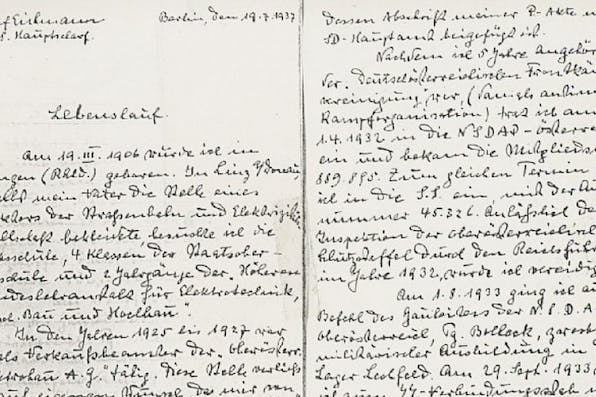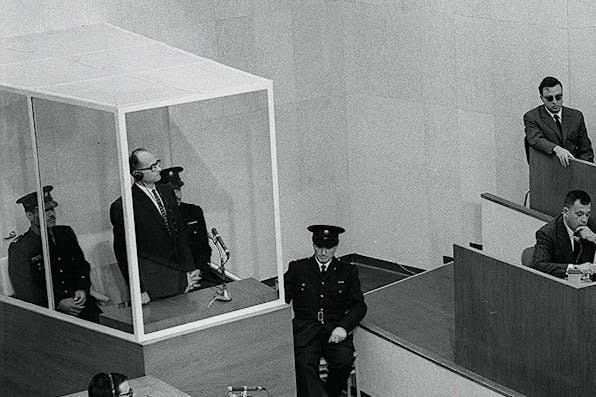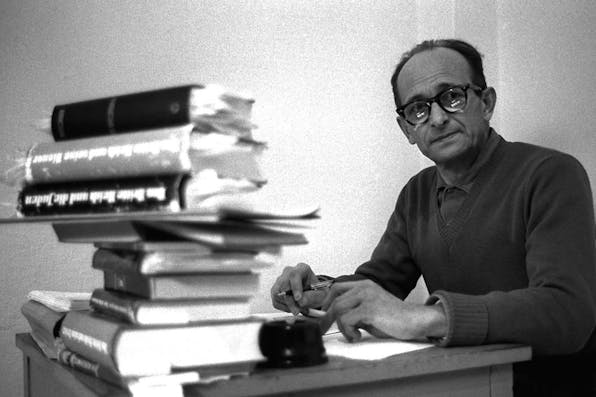
June 22, 2020
Thinking about Eichmann in the Way That the World Thinks about Israel
Even discussions about one of Israel's most triumphant moments are bound to be colored by the ongoing struggle over the morality of its actions.
It often seems as if there is nothing that Israel can do that isn’t disingenuously used to confirm the prejudices of her critics. Whatever the Jewish state does can be marshaled as supposed evidence of her flawed character. But surely the capture of Adolf Eichmann must be considered the exception to that unforgiving rule of international public relations.
As historian Martin Kramer ably writes in this month’s essay, Eichmann’s capture, trial, and execution has become a touchstone of commentary both about how to think about those who perpetrated the Holocaust and about Israel itself. His assessment of the various literary accounts of those who took part in the operation and their subsequent portrayals in film, including the most recent, Operation Finale starring Sir Ben Kingsley as Eichmann, is a convincing and informative guide to the genre. Kramer’s conclusion about the inclination of this latest Eichmann film to humanize the criminal at the center of the story and the need for yet another based on the testimony of Zvi Aharoni to set the historical record straight, is as persuasive as it is authoritative.
But there is another question to be asked about the seemingly irresistible temptation of those who think, write, and make movies about the Eichmann operation to try to make us view the arch criminal in a nuanced fashion. It is not just that doing so makes Eichmann a more interesting film character than the pitiful human cipher that Mossad chief Isser Harel wrote about in The House on Garibaldi Street or the quintessential embodiment of banality that Hannah Arendt wrote about in her much-debated essays and book about his trial.



